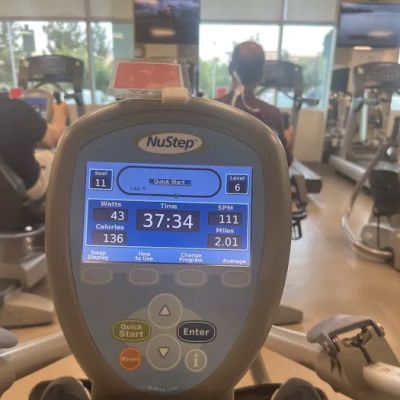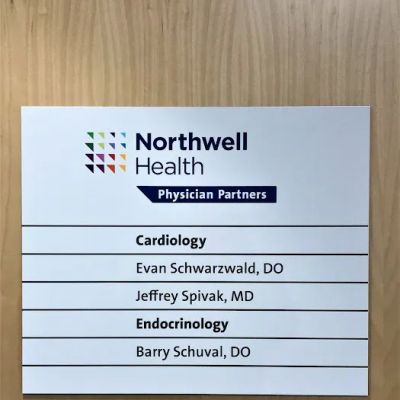How to Stay Heart-Healthy as You Age
As I get older, I realize more and more how important it is to take care of my heart. I’m not just talking about eating well or exercising every now and then—staying heart-healthy as you age is a holistic approach that involves consistently making the right choices every day. The reality is, with age, the risk of heart disease increases, but the good news is that we have the power to slow it down and even reverse certain conditions. In this article, I’ll share the best heart-healthy habits I've learned over the years and how you can implement them in your life too.

1. Understanding Your Heart Health as You Age
First things first, let's talk about why heart health becomes even more crucial as we get older. As you age, your heart undergoes natural changes that can increase your risk of heart disease, including stiffening arteries and changes in your heart's electrical system. In fact, heart disease is the leading cause of death among older adults in the U.S. However, what many people don’t know is that making small, consistent lifestyle changes can significantly improve heart health at any age. In this section, I'll walk you through the basic aspects of heart health, so you can better understand the challenges your body faces as you get older.
Atlanta Heart Specialists
atlanta heart specialists
4375 Johns Creek Pkwy #350, Suwanee, GA 30024, USA

1.1 The Role of Genetics in Heart Health
One factor that plays a role in your heart health is genetics. If heart disease runs in your family, you may be at a higher risk, but that doesn’t mean you’re destined to experience it. I’ve learned that regular monitoring of my cholesterol and blood pressure levels is essential, especially if there’s a history of heart disease in my family. Early detection can help prevent serious issues later on.
2. Maintain a Healthy Diet
What you eat is one of the most influential factors when it comes to heart health. I used to think that eating heart-healthy meant bland, tasteless meals. But over time, I've discovered that a healthy diet can actually be delicious, satisfying, and diverse. Here are some of the top foods that support heart health, along with tips for making your meals more heart-friendly.
2.1 Incorporating Omega-3 Fatty Acids
One of the key elements I’ve included in my diet to promote heart health is omega-3 fatty acids. These healthy fats are found in foods like salmon, walnuts, and flaxseeds. Omega-3s are known to help reduce inflammation, lower blood pressure, and improve overall heart function. I try to include these foods in my meals at least a few times a week, whether it's in a salmon salad or a morning smoothie with flaxseed.
2.2 Eating Plenty of Fruits and Vegetables
Another important change I made was increasing my intake of fruits and vegetables. These are packed with antioxidants, vitamins, and minerals that help lower cholesterol levels and keep arteries clear. I try to eat a variety of colorful fruits and vegetables each day—whether it's a bowl of berries for breakfast or a hearty vegetable stir-fry at dinner. A good rule of thumb I follow is to fill half my plate with veggies during every meal.
2.3 Reducing Processed Foods and Sugar
One thing I’ve learned over time is that processed foods and sugary drinks are some of the biggest culprits when it comes to heart disease. Cutting down on these foods not only improves my heart health but also helps with weight management. I swapped sugary sodas for sparkling water and started cooking at home more often to avoid added sugars and unhealthy fats that come with fast food and packaged snacks.
3. Regular Exercise: Keep Moving
Exercise is another powerful tool in maintaining a healthy heart as we age. I used to think that I needed to engage in intense workouts to keep my heart healthy, but I’ve since learned that consistency is key. Whether it's a brisk walk, a yoga session, or a fun dance class, staying active is critical for heart health.
3.1 Aerobic Exercises for Heart Health
Aerobic exercises, such as walking, swimming, and cycling, are especially beneficial for the heart. I make sure to walk at least 30 minutes most days of the week. It’s a simple and enjoyable activity that has made a huge difference in my cardiovascular health. Aerobic exercises help improve blood circulation, lower blood pressure, and increase the efficiency of the heart. Plus, it's a great way to de-stress and clear my mind.
3.2 Strength Training for Muscle Support
In addition to cardio, strength training is important as we age. It helps build muscle mass, which naturally declines with age. Maintaining muscle strength supports heart health by improving overall body function and metabolism. I’ve incorporated light weightlifting into my routine a couple of times a week, and I’ve noticed improvements in my energy levels and muscle tone. Even bodyweight exercises like squats and push-ups can be incredibly effective.
4. Monitor Your Heart Health Regularly
Staying proactive about heart health is essential, and I can’t stress enough how important it is to monitor your heart regularly. I make sure to have my blood pressure and cholesterol levels checked annually. These are key indicators of cardiovascular health, and keeping track of them allows me to make adjustments to my lifestyle as needed.
4.1 Checking Your Blood Pressure
High blood pressure often goes unnoticed but can put significant strain on your heart. I invested in a reliable blood pressure monitor to check my levels at home regularly. By keeping track, I can take immediate action if I notice any concerning changes, such as modifying my diet or increasing my physical activity.
4.2 Keeping Track of Cholesterol Levels
Another important number to keep track of is your cholesterol level. High cholesterol can increase the risk of heart disease, so it’s crucial to keep it in check. I regularly check my cholesterol levels and follow my doctor’s recommendations to keep them within a healthy range.
5. Stress Management for a Healthy Heart
Stress is an often-overlooked factor in heart health, but it can contribute to heart disease if left unchecked. I’ve learned that managing stress is just as important as diet and exercise. Meditation, mindfulness, and deep breathing exercises have been incredibly helpful for me in managing my stress levels.
5.1 Practicing Meditation and Deep Breathing
I’ve found that taking just 10 minutes each day to practice meditation or deep breathing can make a significant difference in how I feel. These practices lower stress hormones, relax the body, and improve circulation. Incorporating these techniques into my daily routine has made me feel calmer and more focused throughout the day.
5.2 Getting Enough Sleep
Sleep is another critical factor in maintaining a healthy heart. Chronic sleep deprivation can increase the risk of heart disease, so I’ve made it a priority to get 7-8 hours of sleep every night. I’ve noticed that a good night’s sleep leaves me feeling more energized, focused, and ready to tackle the day.





















Deborah Heart and Lung Center
deborah heart and lung center
200 Trenton Rd, Browns Mills, NJ 08015, USA